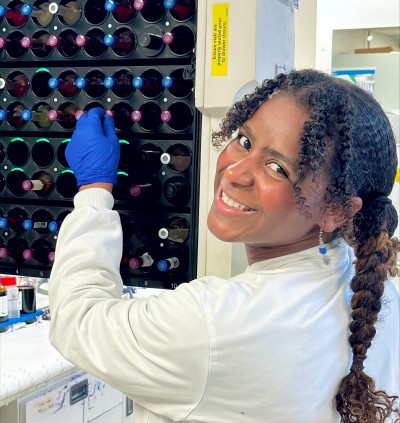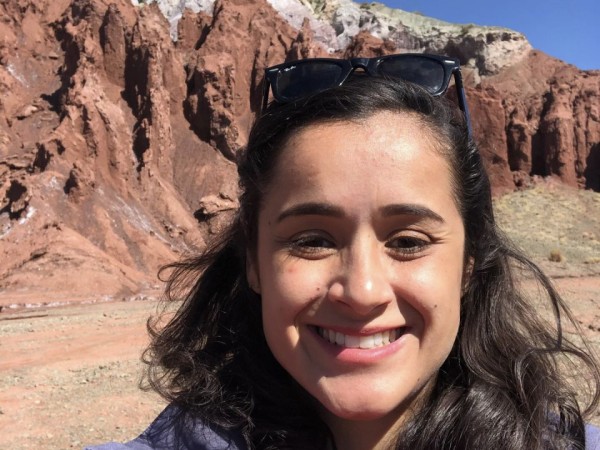
Brenda
"I’ve been incredibly fortunate to have outstanding support throughout my PhD. My supervisors have been instrumental in guiding my research. Their organisation, approachability and constructive feedback have made a huge difference."
Please give a brief synopsis of your research project.
My PhD project focuses on finding biomarkers for equine grass sickness (EGS), a fatal and poorly understood disease that affects horses, with the highest number of cases in the UK. I am using mass spectrometry (MS) and statistical analysis to identify proteins in tissues, urine, plasma, and serum that could help detect the disease earlier and understand how it develops. This project is a partnership between the Moredun Research Institute and the University of Surrey, bringing together experts and resources to improve equine health. Alongside the research, I’m also working to raise awareness about EGS by connecting with researchers, veterinarians, and horse owners. This is a project I care deeply about, and I’m excited to see the difference it could make for horses and the people who care for them.
Why did you choose to study at Surrey for your PhD?
I chose the University of Surrey for several reasons. Its beautiful campus, with stunning lakes and peaceful green spaces, immediately stood out to me. Surrey itself is an area of outstanding natural beauty, and the fact that the University is located in Guildford, a charming medieval town with great restaurants, antique shops, and a lovely Cathedral, made it even more appealing. What really sealed the deal, though, were the state-of-the-art facilities and the School of Veterinary Medicine. Surrey’s reputation for cutting-edge research and innovation made it the perfect place to pursue my goals in veterinary and proteomics research.
Why are you passionate about your area of research?

My passion for biomarker discovery and proteomics stems from the profound potential this research holds to transform equine health, particularly in understanding EGS. Horses are not just animals; they represent history, companionship, and livelihoods for so many. The mystery surrounding EGS and the lack of definitive diagnostics or treatments drives me to push the boundaries of proteomics and molecular biology to find answers that could improve the welfare and survival of these animals. There is something deeply rewarding about standing at the intersection of cutting-edge science and real-world impact. Knowing that my work might one day contribute to early detection or preventative strategies keeps me curious, motivated, and eager to learn.
Have you had opportunities to collaborate with others during your PhD?
Collaboration is at the heart of my PhD. I work closely with experts from the University of Surrey and the Moredun Research Institute, combining resources and knowledge from both institutions. I’ve also had opportunities to engage with equine veterinarians, pathologists, and researchers from various fields. This network of support and expertise has been essential for shaping my project and developing my skills as a researcher.
Read about Brenda meeting HRH The Princess Royal on her visit to the Moredun Research Institute.
What support have you had?
I’ve been incredibly fortunate to have outstanding support throughout my PhD. My supervisors, Professor Chris Proudman and Dr Sneha Pinto, have been instrumental in guiding my research. Their organisation, approachability, and constructive feedback have made a huge difference, ensuring my project stays on track while also helping me grow as a researcher. Beyond my supervisors, the Doctoral College has been a fantastic resource, offering workshops and networking opportunities that have enhanced my skills and confidence. The Researcher Development Programme has helped me refine key skills, from advanced data analysis to science communication, and the Careers team has provided great advice for planning my post-PhD career.
What do you plan to do once you've finished your PhD?
After completing my PhD, I plan to continue working in the field of veterinary science and proteomics, ideally in a research role that combines my passion for science with solving real-world problems. I’m particularly interested in pursuing postdoctoral research or working in the biotech industry, focusing on diagnostics or biomarker discovery. Long term, I hope to contribute to advancing animal health and supporting the equine community through impactful research and potentially explore academic opportunities such as lecturing.
Find out more about our Veterinary Medicine and Science PhD.

